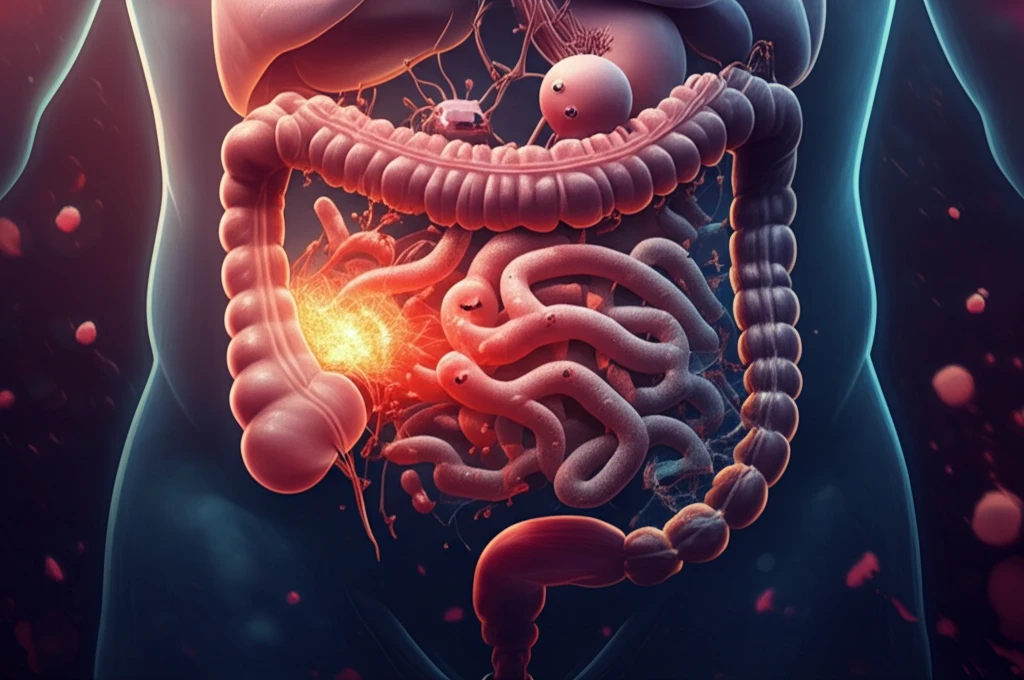
Gut Health Heroes: How These Probiotics Can Calm Your Colitis
"Discover the power of Lactobacillus plantarum MTCC 5690 and Lactobacillus fermentum MTCC 5689 in easing colitis symptoms and promoting gut health."
In recent years, probiotics have surged in popularity as a natural approach to enhance gut health. Among the vast array of probiotic options, lactobacilli strains stand out due to their extensive history of safe consumption and potential health benefits. While generally regarded as safe, concerns have arisen regarding the potential for certain Lactobacillus strains to cause infections, particularly in individuals with compromised immune systems. This has led to rigorous screening processes for new strains to ensure their safety and efficacy, especially in vulnerable populations.
Colitis, a chronic inflammatory condition affecting the colon, poses a significant challenge for many. Characterized by inflammation, ulceration, and discomfort, colitis can severely impact an individual's quality of life. As such, researchers are constantly exploring novel strategies to manage colitis symptoms and promote gut healing. Probiotics, with their ability to modulate the gut microbiota and reduce inflammation, have emerged as a promising avenue for colitis management.
This article explores the potential of two specific Lactobacillus strains, Lactobacillus plantarum MTCC 5690 and Lactobacillus fermentum MTCC 5689, in alleviating colitis symptoms and promoting gut health. Drawing upon a recent study published in Probiotics and Antimicrobial Proteins, we delve into the findings of a colitis mouse model, shedding light on the safety and efficacy of these probiotic strains in managing inflammatory conditions.
Unlocking the Potential: Lactobacillus Strains in Colitis Management

The study, conducted by Pradhan et al. (2019), investigated the impact of Lactobacillus plantarum MTCC 5690 and Lactobacillus fermentum MTCC 5689 on dextran sodium sulfate (DSS)-induced colitis in mice. DSS is a chemical compound commonly used to induce colitis-like symptoms in animal models, mimicking the inflammation and gut barrier dysfunction observed in human colitis.
- Colon and cecum length: These measurements provide insights into the overall health and integrity of the colon.
- Blood biochemistry and hematology: These tests assess various blood parameters to detect any signs of inflammation or adverse effects.
- Intestinal permeability: This measures the ability of substances to pass through the intestinal lining, indicating gut barrier function.
- Myeloperoxidase (MPO) activity: MPO is an enzyme released by immune cells during inflammation, serving as a marker of inflammatory activity.
Embracing the Future: Probiotics as a Promising Colitis Solution
In conclusion, the study by Pradhan et al. (2019) highlights the potential of Lactobacillus plantarum MTCC 5690 and Lactobacillus fermentum MTCC 5689 as safe and effective biotherapeutics for alleviating inflammatory conditions, such as colitis. These probiotic strains demonstrated the ability to improve gut health, reduce inflammation, and restore gut barrier function in a colitis mouse model. While further research is needed to validate these findings in human clinical trials, the results offer hope for individuals seeking natural and effective strategies to manage colitis symptoms and improve their overall well-being. As the understanding of the gut microbiota and its role in health and disease continues to evolve, probiotics like Lactobacillus plantarum MTCC 5690 and Lactobacillus fermentum MTCC 5689 may play an increasingly important role in promoting gut health and preventing inflammatory conditions.
